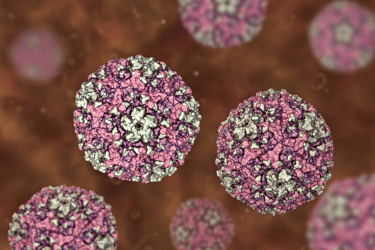Protein vital for enterovirus replication identified by study
Posted: 17 September 2019 | Victoria Rees (Drug Target Review) | No comments yet
Researchers have discovered a particular protein that is required for enterovirus replication and survival, presenting a therapeutic target.


A study has found that disabling a single protein inside cells could be used as protection against enteroviruses, including the common cold.
The research was conducted by Stanford University and the University of California, San Francisco, both US. Using human cell cultures and mice models, the team discovered a method to stop a broad range of enteroviruses, including rhinoviruses, from replicating.
To identify which proteins in human cells are vital for the viral reproduction, the researchers used a genome-wide screen and generated a cultured line of human cells for the enteroviruses to infect.
They then used gene editing to randomly disable a single gene in each of the cells. The resulting culture contained, in the aggregate, cells lacking one or another of every gene in our genome.
The scientists infected the culture with the rhinovirus RV-C15 and then with EV-C68, implicated in acute flaccid myelitis. Some cells managed to survive infection and spawn colonies.
As RV-C15 and EV-D68 are taxonomically distinct, it allowed the researchers to identify a handful of individual genes whose absence reduced the ability to replicate for both.


A gene that encodes for the SETD3 enzyme was revealed by the researchers as critical for viral success. Generating a culture of human cells lacking SETD3, the researchers infected them with the EV-D68 poliovirus, three different kinds of rhinovirus and two types of coxsackievirus.
None of these were able to replicate in the SETC3-defeicient cells. However, all were able to attack cells where SETD3-production was restored.
Mouse models, which were bioengineered to lack SETD3, were found to be immune to two distinct enteroviruses that can cause paralytic and fatal encephalitis, even when those viruses were injected directly into their brains.
“In contrast to normal mice, the SETD3-deficient mice were completely unaffected by the virus,” said Dr Jan Carette, associate professor of microbiology and immunology at Stanford.
Further, the team found that enteroviruses do not use the section of SETD3 that cells employ for routine enzymatic activity. Instead, enteroviruses make use of a protein whose interaction with a different part of the SETD3 molecule, in some as yet unknown way, is necessary for their replication.
“This gives us hope that we can develop a drug with broad antiviral activity against not only the common cold but maybe all enteroviruses, without even disturbing SETD3’s regular function in our cells,” Carette said.
The team says their findings could also be used to stop viruses associated with asthma, encephalitis and polio.
The study was published in Nature Microbiology.
Related topics
Drug Discovery, Drug Targets, Genome Editing, Genomics, Screening
Related conditions
acute flaccid myelitis, Asthma, Common cold, encephalitis, Polio
Related organisations
Stanford University, University of California San Francisco
Related people
Dr Jan Carette








